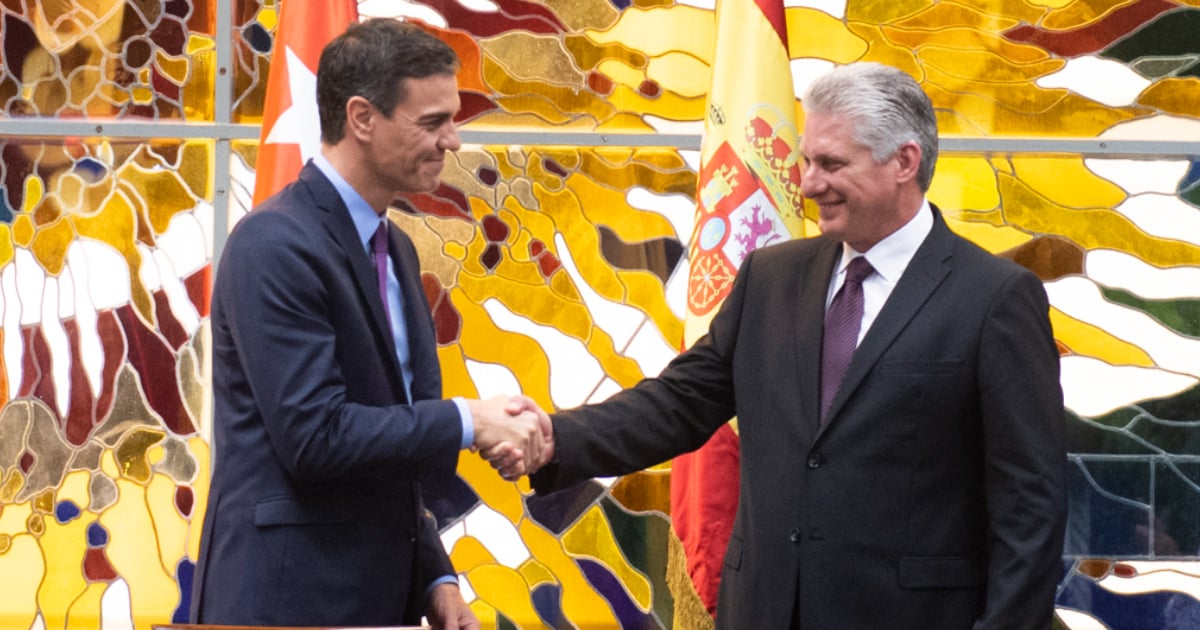Amidst a significant corruption scandal, the Spanish government, under the leadership of Pedro Sánchez, has initiated a debt forgiveness program for Cuba, amounting to up to 375 million euros. This decision was formalized in Seville with the signature of the Minister of Economy, Trade, and Enterprise, Carlos Cuerpo. The arrangement means that funds initially allocated for debt repayment will instead be diverted to investment projects within the island nation.
The initiative is part of an agreement established between Spain and Cuba in 2016 but is being actualized now within the framework of a new multilateral push spearheaded by the Paris Club. The Spanish government claims that the aim is to finance sustainable development projects in strategic sectors such as energy, water, and food security, allowing for the participation of Spanish companies and Cuban entities under strict transparency and accountability standards.
Through this method, the Cuban regime will avoid repaying the money directly and instead will execute projects overseen by both governments. Spanish authorities emphasize the model's effectiveness in "strengthening" international cooperation and fostering high-impact social projects.
As of 2020, the Cuban government's external debt to Spain stood at 1.970,66 million euros (approximately 2.258 billion dollars), which accounts for nearly two-thirds of the total debt owed by all of Ibero-America (3.086,68 million euros).
Scrutiny on Sánchez
This measure comes at a sensitive time for Sánchez's administration, which is under heavy criticism due to corruption scandals that have shaken the upper echelons of the Spanish Socialist Workers' Party (PSOE). The most severe case involves Santos Cerdán, former Secretary of Organization of the PSOE and considered the president's right-hand man. Cerdán has been detained without bail, accused of leading an illegal commission network in conjunction with other senior party officials and advisors.
Supreme Court Judge Leopoldo Puente accused Cerdán of orchestrating a corruption scheme linked to public works contracts, in collaboration with former Minister of Transport José Luis Ábalos and his ex-advisor Koldo García. The investigation suggests that Cerdán managed and distributed the illegal gains among those involved and maintained control over a substantial, unrecovered sum.
The Anti-Corruption Prosecutor's Office requested his imprisonment due to the risk of evidence destruction and his central role in the corrupt network. Cerdán, however, denies the allegations, claiming he has not taken "a single euro" and defending the PSOE's innocence.
The 'Debt Swap'
The debt conversion program, employed by both the Cuban regime and the Spanish government, involves Cuba investing the equivalent of its debt in local currency into pre-approved projects instead of making cash payments to Spain. This debt swap allows the debtor country to agree with the creditor on debt forgiveness or reduction (total or partial) while committing to invest the equivalent amount locally in projects agreed upon with the creditor.
Typically, these projects focus on education, health, environment, sustainable development, and social infrastructure. Although the Spanish government presents it as an innovative cooperation tool, the decision has attracted criticism for coinciding with the eruption of corruption cases directly impacting the president's circle.
Over the past two decades, Spain has entered into similar agreements with over 25 countries, forgiving more than 1.6 billion euros. However, given the current context, some view this new step towards engaging with the Cuban regime as a tactic to divert attention from the internal political crisis.
Understanding Spain's Debt Forgiveness to Cuba
What is the purpose of Spain's debt forgiveness to Cuba?
The aim is to finance sustainable development projects in sectors such as energy, water, and food security, facilitating cooperation between Spanish companies and Cuban entities with a focus on transparency and accountability.
Why is Spain's government under scrutiny?
The Spanish government, led by Pedro Sánchez, faces heavy criticism due to corruption scandals involving key figures in the Spanish Socialist Workers' Party (PSOE), which have raised concerns over transparency and governance.
How does the debt swap program work?
The debt swap program involves the debtor country investing the amount equivalent to its debt in local currency into approved projects rather than repaying the creditor in cash, focusing on areas like education, health, and infrastructure.
